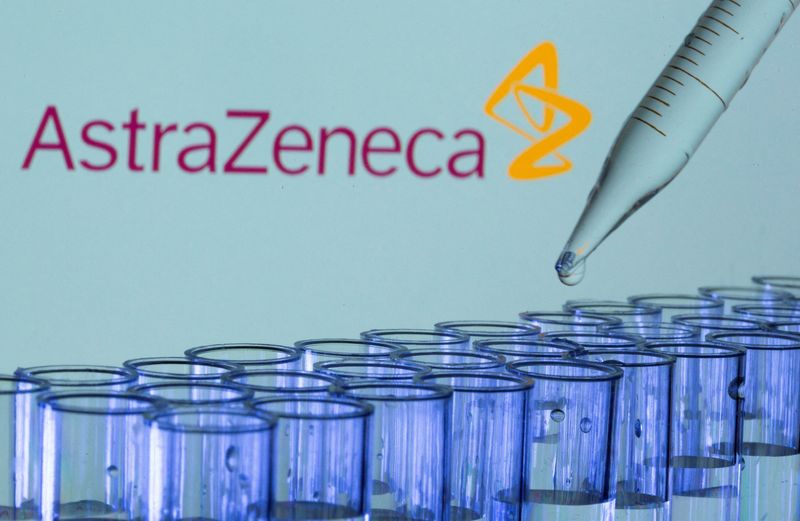Investing.com’s stocks of the week
By Maggie Fick and Ludwig Burger
(Reuters) - AstraZeneca (NASDAQ:AZN) said on Monday an experimental precision drug slowed progression of lung cancer in a late-stage trial, but the company's shares fell as much as 6% as analysts said the benefits may not be as pronounced as hoped.
The drug, datopotamab deruxtecan, which is being jointly developed with Japan's Daiichi Sankyo, was shown to prolong progression-free survival compared with standard chemotherapy in patients whose non-small cell lung cancer had returned after one or two prior treatment attempts, AstraZeneca said.
The drug belongs to a promising class known as antibody drug conjugates (ADC), which consist of tumour-seeking monoclonal antibodies that are combined with a cell-killing chemotherapy payload.
The British drugmaker also said some trial participants had died of interstitial lung disease, or scarring of lung tissue, but added that the drug's safety profile was in line with observations during previous clinical trials.
It declined to provide more trial details, saying they would be presented at an as yet undisclosed medical conference.
At 0855 GMT, shares in AstraZeneca were down 5.8% at their lowest level in more than three months.
The drug's cell-killing molecules attach themselves to a protein known as TROP2, which is associated with a large majority of lung cancers.
Gilead (NASDAQ:GILD) has pioneered the targeting of TROP2 with an ADC named Trodelvy, approved to treat certain types of breast and bladder cancer.
Merck & Co and partner Kelun-Biotech of China are at an earlier development stage with a drug candidate in the same class.
AstraZeneca acquired the collaboration rights to the experimental drug in a 2020 deal worth up to $6 billion with Daiichi, including up to $4 billion contingent on sales, which intensified their successful pact on ADC drug Enhertu against breast cancer and other tumours.
AstraZeneca said that the datopotamab deruxtecan trial would continue as planned to assess the effect of the drug on overall survival of patients, another important efficacy criterion.
Barclays (LON:BARC) said in an analyst note that the trial was successful but until there is more data, some investors and analysts will have concerns that the treatment may not have the potential to become a treatment of first choice after diagnosis.
"We think that it’s certainly far too early to write off Dato-DXd and we like AZN for a number of reasons, so we would view any negative reaction today as a buying opportunity," the note read.
